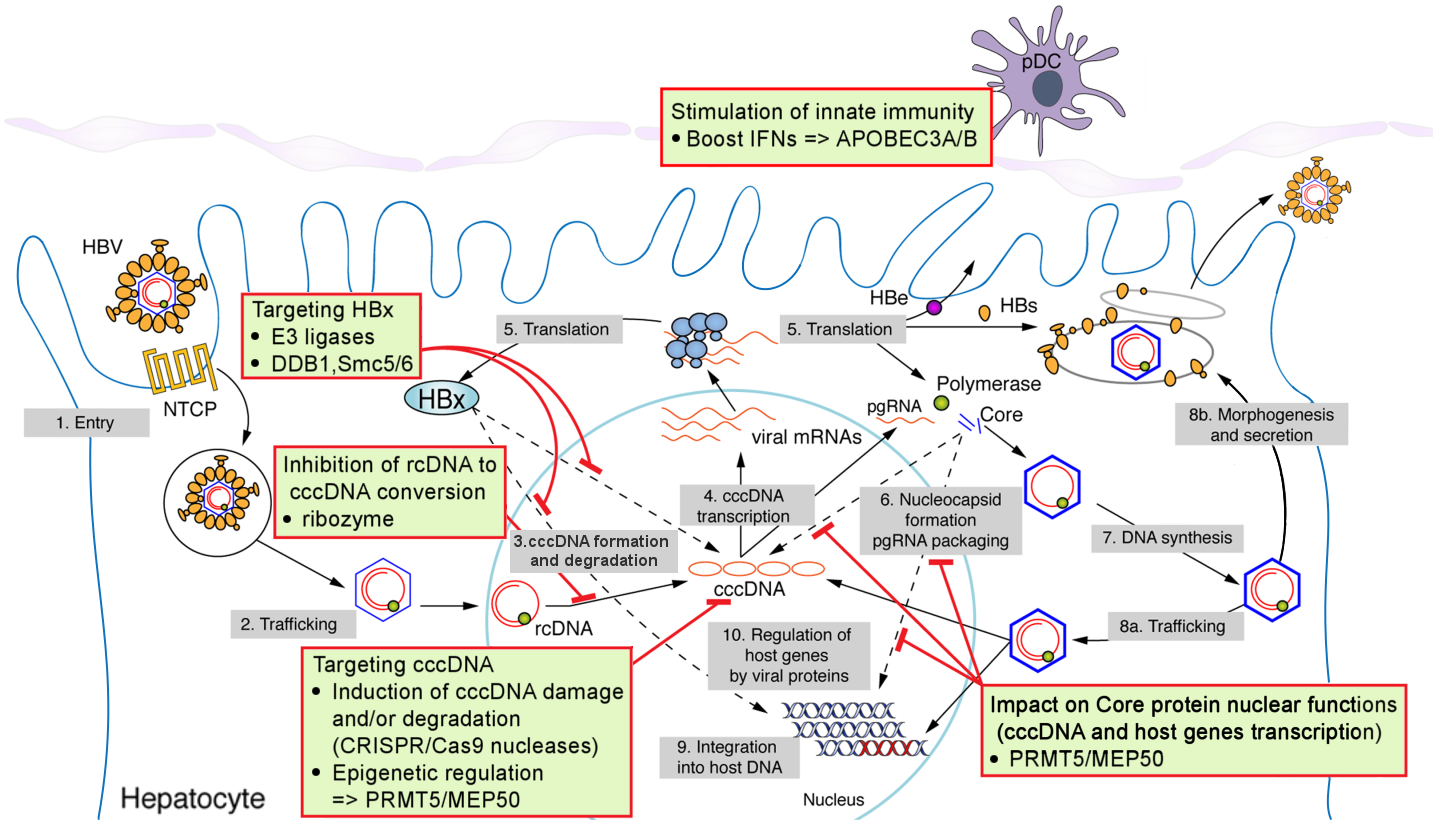Towards novel strategies to target chronic hepatitis B
PI: Iva Pichová, co-PIs: Jan Weber, Klára Grantz Šašková, Edward Curtis, Ivan Hirsch

Hepatitis B viral infection is a global public health problem that affects millions of people worldwide. Infected individuals are at a high risk of developing chronic liver diseases, including hepatitis, cirrhosis, and hepatocellular carcinoma. The key factor in the persistence of infection is an intracellular HBV replication intermediate – covalently closed circular (ccc) DNA, which resides in the nucleus of infected cells as a non-integrated plasmid-like molecule and serves as a transcriptional template for HBV. Despite intensive research, the contribution of HBV proteins to the development and regulation of chronic infection is poorly understood and strategies for cccDNA degradation and elimination are limited.
In this project, we employ a collaborative approach combining molecular biology, molecular virology, immunovirology, biochemistry, synthetic biology, and nanochemistry to enhance our understanding of cccDNA formation and degradation. Specifically, we search for novel interactions of core and HBx proteins that are critical for HBV replication, cccDNA formation, and cccDNA degradation. We use genome editing approaches to degrade cccDNA, introduce novel methods to target the HBV genome using nucleic acids, and develop a system for the targeted transport of CRISPR/Cas9 as well as ribozymes and deoxyribozymes to the nuclei of HBV infected cells. In addition, we investigate stimulation of IFN-α production by plasmacytoid dendritic cells (pDCs) for cccDNA degradation, and immunological function of extracellular vesicles produced by HBV-infected hepatocytes.



